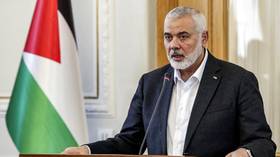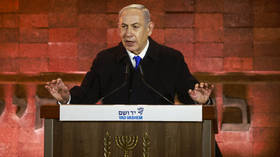Hamas accepts ceasefire deal

Hamas has accepted a ceasefire proposal put forward by Egyptian and Qatari mediators, a spokesman for the group told Al Jazeera on Monday. The announcement came shortly after Israel ordered the evacuation of the city of Rafah ahead of a long-planned assault.
Hamas leader Ismail Haniyeh held phone calls with Qatari Prime Minister Sheikh Mohammed bin Abdul Rahman Al Thani and Egyptian Intelligence Minister Abbas Kamel, informing them “of the Hamas movement’s approval of their proposal regarding the ceasefire agreement,” the group said in a statement to Al Jazeera.
The details of the proposal have not yet been made public. Hamas has previously demanded that any ceasefire be permanent and include the withdrawal of all Israeli troops from the besieged Palestinian enclave. Israeli Prime Minister Benjamin Netanyahu has refused to issue these guarantees, warning last week that Israel will not allow Hamas to remain in power in Gaza, and will invade Rafah with or without a ceasefire deal.
Netanyahu has, however, said that Israel is ready for a temporary pause in fighting to allow the exchange of Israeli hostages for Palestinian prisoners.
The Israeli PM has threatened for several months to launch a ground invasion of Rafah, a city in southern Gaza currently home to around 1.4 million displaced Palestinians from other parts of the territory. Despite condemnation from the US, EU, and scores of other countries, the Israeli military ordered civilians to leave Rafah on Monday, warning that it would strike the city with “extreme force” shortly thereafter.
It is not clear whether the threat of invasion influenced Hamas’ decision to accept the ceasefire proposal. Despite Netanyahu’s insistence on entering Rafah, other Israeli officials have suggested that Hamas could avoid an invasion by agreeing to Israel’s temporary truce.
It is also unclear whether the deal put forward by Egypt and Qatar has Israel’s support. An unnamed Israeli official told Reuters that Hamas agreed to a “softened” version of West Jerusalem’s initial offer, which included ‘far-reaching” conclusions that Israel would not support.
Israel declared war on Hamas after the Palestinian militants launched a surprise attack on October 7, killing around 1,200 people and taking roughly 250 hostages back to Gaza. The death toll from Israel’s retaliation in the enclave is approaching 35,000 as of Monday, according to the Palestinian health authorities.













